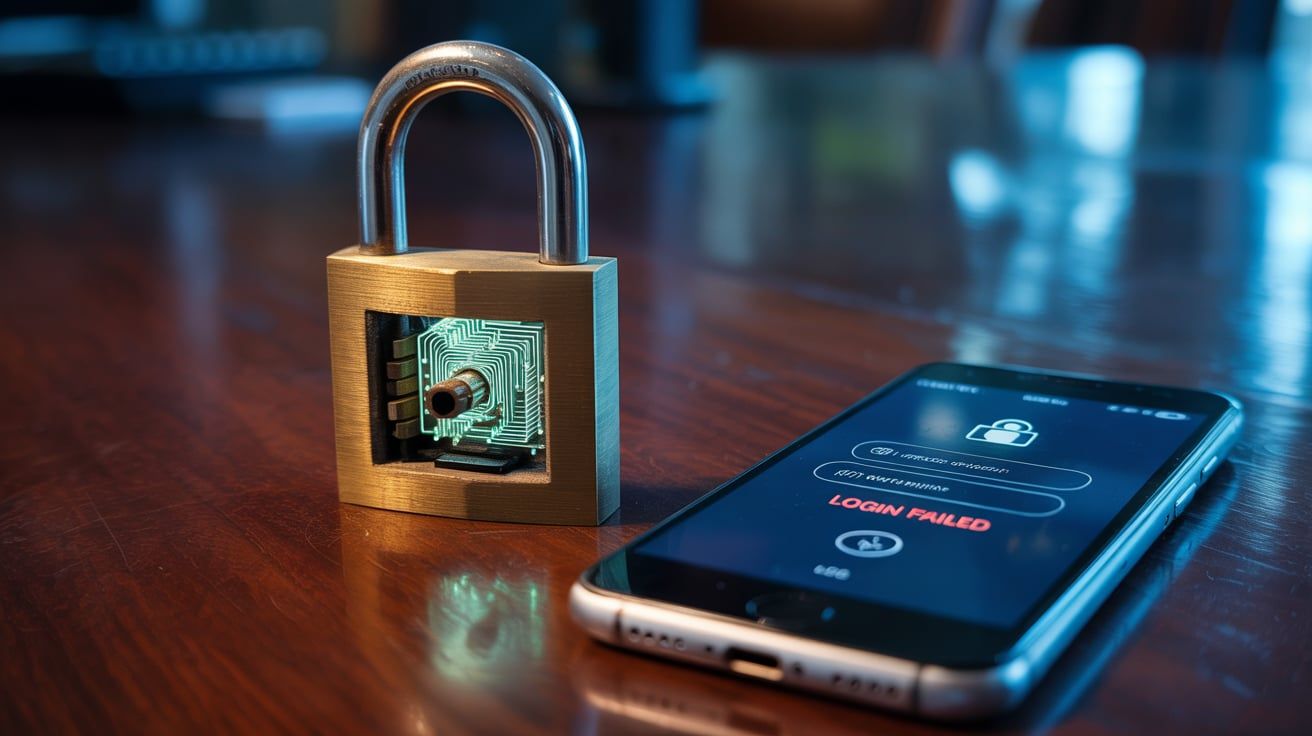
Introduction: The Illusion of Digital Privacy
Remember that time you were talking about needing new running shoes, and suddenly ads for running shoes started popping up everywhere online? Creepy, right? We all know, on some level, that our digital lives aren’t entirely private. But the sheer scope of data collection happening behind the scenes is often far more extensive than we realize. We click “agree” on lengthy terms and conditions without a second thought, granting access to our location, contacts, browsing history, and much more. The truth is, many of us are walking around with digital footprints so large, they could be tracked from space. But don’t despair! There are steps you can take to reclaim some control over your privacy. Let’s dive into some of the most commonly overlooked privacy settings that you should adjust right now.
Location, Location, Location: App Permissions Gone Wild
One of the biggest privacy offenders is location tracking. Many apps request access to your location “while using the app,” which sounds reasonable enough. However, some apps continue to track your location even when you’re not actively using them. This data can be used to build a detailed profile of your daily routines, frequented places, and even your social connections. Think about that weather app that wants constant access to your location – does it really need to know where you are at 3 AM?
To combat this, regularly review your app permissions. On both iOS and Android, you can find a list of apps that have access to your location. Change the permission to “Only While Using the App” or, if the app doesn’t truly need your location, revoke access entirely. Be particularly wary of apps that request location access but don’t seem to have a legitimate reason for needing it. This simple step can significantly reduce the amount of location data being collected about you.
The Microphone is Always Listening (Maybe)
The idea that our phones are constantly listening to our conversations is a common privacy concern, and while tech companies deny actively recording us, the potential is certainly there. Many apps request access to your microphone, and while some, like voice recording apps or video conferencing tools, legitimately need it, others might be less justifiable. Consider that random game you downloaded last month – does it really need access to your microphone?
Just like with location permissions, it’s crucial to review which apps have access to your microphone. On your phone’s settings, navigate to the microphone permissions and revoke access for any apps that don’t absolutely require it. This is especially important for apps you rarely use or those from unknown developers. While it might not completely eliminate the risk of eavesdropping, it significantly reduces the potential for unwanted audio collection.
Ad Tracking: The Invisible Hand Guiding Your Online Experience
Ever wonder why you see so many ads that seem eerily relevant to your interests? That’s thanks to ad tracking, a system where companies collect data about your browsing habits, online purchases, and even your app usage to create a profile of you. This profile is then used to target you with personalized ads, which can be both annoying and intrusive. The digital advertising ecosystem is a complex web, but understanding how it works is the first step to protecting your privacy.
Fortunately, you can limit ad tracking on most platforms. On iOS, you can enable “Limit Ad Tracking” in the privacy settings. On Android, you can reset your advertising ID. These actions won’t eliminate ads entirely, but they will make it harder for companies to track your activity across different apps and websites. You can also use privacy-focused browsers and search engines that don’t track your searches or browsing history. Consider using a VPN to further mask your IP address and location.
Social Media: The Privacy Minefield
Social media platforms are notorious for collecting vast amounts of data about their users. From your posts and comments to your likes and shares, every interaction is tracked and analyzed. This data is used to build a detailed profile of your interests, beliefs, and social connections, which is then used to target you with ads and personalized content. While social media can be a great way to connect with friends and family, it’s important to be aware of the privacy risks involved.
Take a deep dive into your social media privacy settings. Limit who can see your posts, photos, and profile information. Disable location tracking and ad personalization. Be mindful of what you share online, as anything you post can be used against you. Consider using a pseudonym or creating a separate account for more private interactions. Remember, once something is online, it’s very difficult to remove it completely.
Email: The Gateway to Your Digital Life
Your email inbox is a treasure trove of personal information, making it a prime target for hackers and marketers alike. Many email providers track your email opens and clicks, allowing them to build a profile of your interests and habits. This data is then used to target you with personalized ads and spam. Furthermore, your email address is often used as a login for various online services, making it a critical point of vulnerability.
Protect your email privacy by using a strong password and enabling two-factor authentication. Be wary of suspicious emails and avoid clicking on links or downloading attachments from unknown senders. Consider using a privacy-focused email provider that doesn’t track your activity or sell your data. You can also use a disposable email address for signing up for online services to avoid spam and protect your primary email address. Regularly review your email filters and unsubscribe from unwanted newsletters.
Gadgets and Smart Home Devices: The Internet of Things (and Privacy Concerns)
The rise of smart home devices has brought convenience and automation to our lives, but it has also introduced new privacy risks. Smart speakers, smart TVs, and other connected devices are constantly listening and collecting data about your habits and preferences. This data can be used to target you with personalized ads or even shared with third parties without your knowledge. The innovation in this space is exciting, but it’s crucial to be aware of the potential privacy implications.
Review the privacy settings of your smart home devices and disable any features that you don’t need. Be mindful of what you say around smart speakers, as they are always listening for their wake word. Consider using a VPN to encrypt your internet traffic and protect your privacy. Regularly update the firmware of your smart home devices to patch security vulnerabilities. And, perhaps most importantly, think carefully before bringing new connected devices into your home.
AI and the Future of Privacy: A Constant Balancing Act
Artificial intelligence is rapidly transforming our world, and its impact on privacy is profound. AI algorithms are used to analyze vast amounts of data, including our browsing history, social media activity, and even our biometric information. This data is used to build detailed profiles of us, which can be used for a variety of purposes, from targeted advertising to predictive policing. The development of AI presents both opportunities and challenges for privacy.
As AI becomes more pervasive, it’s crucial to advocate for strong privacy regulations and ethical guidelines. We need to ensure that AI is used responsibly and that our privacy rights are protected. This includes transparency about how AI algorithms are used, the right to access and correct our data, and the ability to opt out of data collection. The future of privacy depends on our ability to navigate the complex ethical and technological challenges posed by AI. The digital world is constantly evolving, and staying informed about the latest privacy threats and solutions is essential.
Conclusion: Take Control of Your Digital Footprint Today
Protecting your privacy in the digital age is an ongoing process, not a one-time fix. By taking the time to review and adjust your privacy settings, you can significantly reduce your digital footprint and regain control over your personal information. Don’t be complacent – regularly check your settings, stay informed about the latest privacy threats, and advocate for stronger privacy regulations. The future of privacy depends on our collective efforts to protect our rights in the digital world. So, take a few minutes right now to check those privacy settings we’ve discussed. You might be surprised at what you find. And remember, your privacy is worth fighting for!


